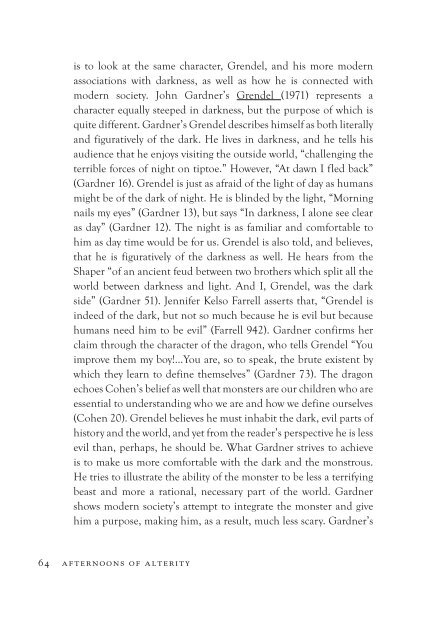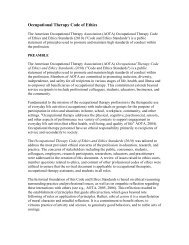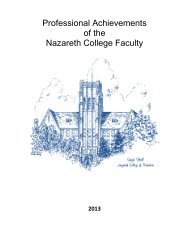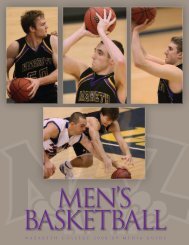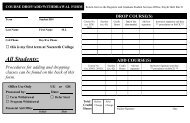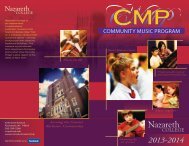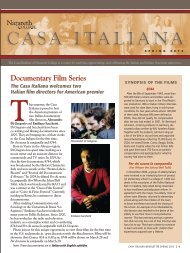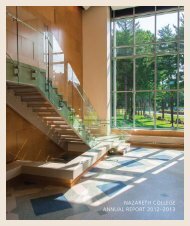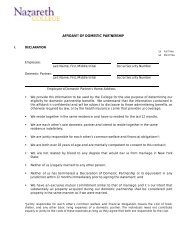Afternoon of Alterity - Nazareth College
Afternoon of Alterity - Nazareth College
Afternoon of Alterity - Nazareth College
You also want an ePaper? Increase the reach of your titles
YUMPU automatically turns print PDFs into web optimized ePapers that Google loves.
is to look at the same character, Grendel, and his more modernassociations with darkness, as well as how he is connected withmodern society. John Gardner’s Grendel (1971) represents acharacter equally steeped in darkness, but the purpose <strong>of</strong> which isquite different. Gardner’s Grendel describes himself as both literallyand figuratively <strong>of</strong> the dark. He lives in darkness, and he tells hisaudience that he enjoys visiting the outside world, “challenging theterrible forces <strong>of</strong> night on tiptoe.” However, “At dawn I fled back”(Gardner 16). Grendel is just as afraid <strong>of</strong> the light <strong>of</strong> day as humansmight be <strong>of</strong> the dark <strong>of</strong> night. He is blinded by the light, “Morningnails my eyes” (Gardner 13), but says “In darkness, I alone see clearas day” (Gardner 12). The night is as familiar and comfortable tohim as day time would be for us. Grendel is also told, and believes,that he is figuratively <strong>of</strong> the darkness as well. He hears from theShaper “<strong>of</strong> an ancient feud between two brothers which split all theworld between darkness and light. And I, Grendel, was the darkside” (Gardner 51). Jennifer Kelso Farrell asserts that, “Grendel isindeed <strong>of</strong> the dark, but not so much because he is evil but becausehumans need him to be evil” (Farrell 942). Gardner confirms herclaim through the character <strong>of</strong> the dragon, who tells Grendel “Youimprove them my boy!…You are, so to speak, the brute existent bywhich they learn to define themselves” (Gardner 73). The dragonechoes Cohen’s belief as well that monsters are our children who areessential to understanding who we are and how we define ourselves(Cohen 20). Grendel believes he must inhabit the dark, evil parts <strong>of</strong>history and the world, and yet from the reader’s perspective he is lessevil than, perhaps, he should be. What Gardner strives to achieveis to make us more comfortable with the dark and the monstrous.He tries to illustrate the ability <strong>of</strong> the monster to be less a terrifyingbeast and more a rational, necessary part <strong>of</strong> the world. Gardnershows modern society’s attempt to integrate the monster and givehim a purpose, making him, as a result, much less scary. Gardner’s64 afternoons <strong>of</strong> alterity


